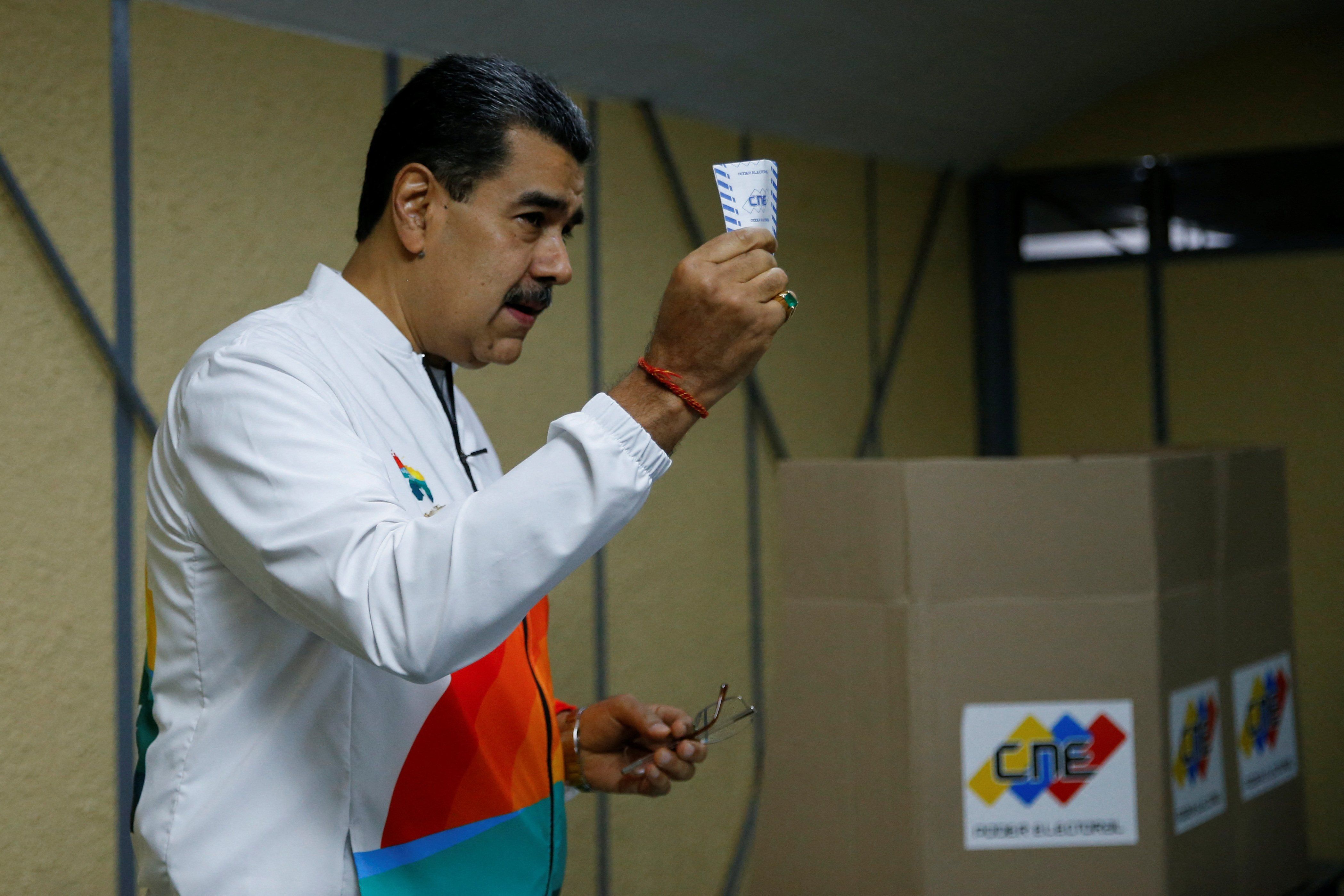Venezuela held a referendum Sunday on proposed statehood for the oil-rich region of Essequibo, currently governed by neighboring Guyana, with more than 95% reportedly voting to approve the proposed takeover.
At 61,600 square miles, Essequibo comprises two-thirds of Guyana’s territory and is home to 125,000 of its 800,000 citizens. An international arbitral tribunal awarded the area to Britain in 1899 when the latter controlled British Guiana, but Venezuela has never recognized the ruling. Its contestation took on new life after ExxonMobil discovered oil in Essequibo's offshore waters in 2015, leading to a case before the International Court of Justice at the Hague that remains unresolved.
Venezuela’s referendum asked its citizens five questions, including whether they agreed with creating a new state called Guayana Esequiba, granting its population Venezuelan citizenship and identity cards, and including the new state in the map of Venezuelan territory. While the ICJ urged Venezuela to refrain from “taking any action” on the proposals, it did not ban the holding of the referendum.
Guyana fears the referendum is the first step to a takeover. “This is a textbook example of annexation,” Paul Reichler, an American lawyer representing Guyana, told the ICJ. But Venezuelan President Nicolás Maduro disagreed, saying, “We are solving through constitutional, peaceful, and democratic means an imperial dispossession of 150 years.”
Before the vote, his government poured considerable resources into Essequibo-themed music, nationally televised history lessons, murals, events, and social media content to bolster the "Yes" vote. Observers see the referendum as a means of distracting the nation from calls for free and fair conditions in next year’s presidential election, as well as from the US government’s demand that Maduro release political prisoners and wrongfully detained Americans. Analysts say the creation of a Venezuelan state in Essequibo is highly unlikely.
Knowing the referendum would pass, Ian Bremmer tweeted that he was "deeply skeptical we are on the brink of war," especially since China, Venezuela’s close friend, owns a piece of the massive oil find Maduro claims.



















